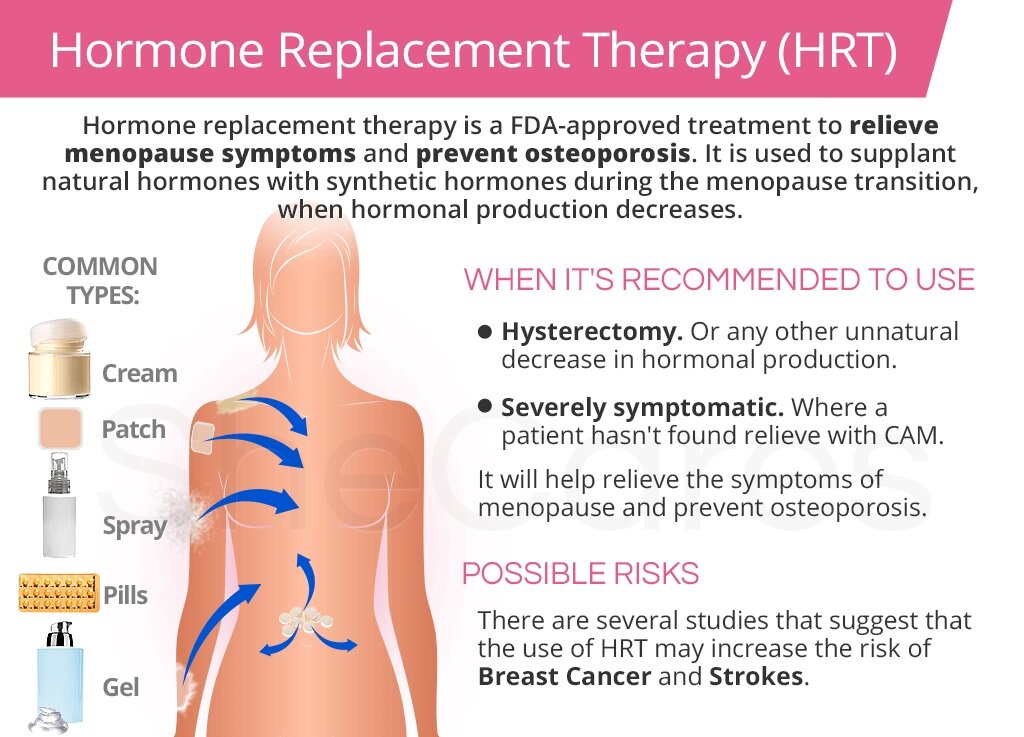Hormone Replacement Q & A
What is menopause?
Menopause refers to the time when your period has stopped entirely for at least 12 months. The average age of menopause among women in the United States is 51, but menopause can occur several years before or after that period.
Perimenopause is the time leading up to menopause and can last two to 10 years before menopause occurs.
What are the symptoms of menopause?
During both phases, your hormones change erratically, leading to numerous symptoms and concerns. Common symptoms of menopause include:
Missed periods
Change in periods
Vaginal dryness
Hot flashes
Confusion or brain fog
Chronic fatigue
Throughout perimenopause and menopause, you may also notice other issues, like mood swings, trouble sleeping, and anxiety that make it difficult to go about your daily tasks.
How are menopausal symptoms managed?
Dr. Godat manages your transition to menopause based on the symptoms you experience. He may recommend hormone replacement therapy to level out your hormones and alleviate the common symptoms of menopause.
Other treatments are available for menopausal symptom relief. Dr. Godat carefully evaluates your symptoms and medical history to recommend hormone replacement therapy or other therapies.
What is hormone replacement therapy?
Dr. Godat uses hormone replacement therapy to compensate for the changes in your hormone levels. During your childbearing years, your ovaries produce estrogen and progesterone that control your menstrual cycle.
During perimenopause, hormone production decreases. This transition isn’t a smooth one, and your hormone levels tend to go up and down erratically. Hormone replacement steadies the hormonal changes you’re experiencing. Dr. Godat may also recommend hormone therapy to prevent osteoporosis.
There are several ways Dr. Godat may provide you with hormones, including:
Hormone pellets or patches
Bioidentical hormone pills
Birth control pills
Gels or lotions
Sprays
If you are no longer getting your periods, he may prescribe only estrogen therapy. If you are still getting periods, Dr. Godat provides both estrogen and progesterone.
You may need to take the hormones on a cyclic plan that includes daily estrogen with progesterone taken for only several days each month. Dr. Godat may also recommend continuous therapy where you take estrogen and progesterone daily.
What are the risks of hormone replacement therapy?
When taking hormones, you may be at increased risk for:
Uterine and breast cancer
Heart attacks and strokes
Deep vein thrombosis
Gallbladder disease
Dr. Godat discusses the risks associated with hormone replacement before treatment begins. He also reviews your medical history to ensure you’re a good candidate for hormone replacement therapy.
Call to schedule an appointment and learn more about the benefits of hormone replacement therapy.

